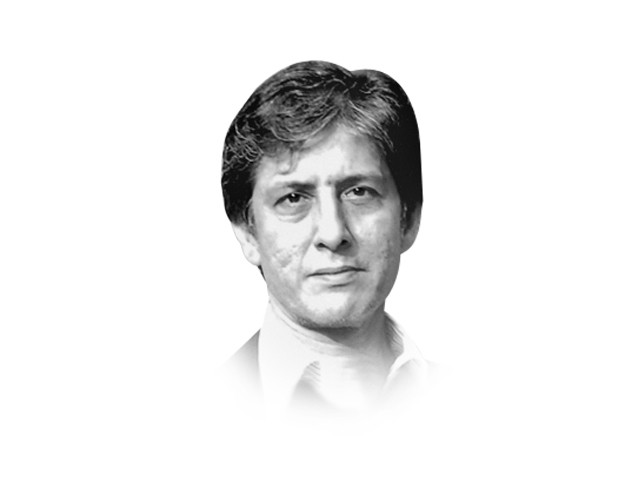Our terrible binary
As far as it can, for as long as it can, the military will resist a shift in balance of power in favour of civilians.

Our terrible binary
I fell afoul of many readers. We are now in the year 2012 and while many things have changed, some central questions remain.
Take the exorcising of memogeist.
The Supreme Court judges are now being criticised for, to put it charitably, helping the military pull down the legitimately elected government of the PPP. These are the same judges for whose restoration the lawyers and civil society activists had struggled so hard. That movement was pegged on the belief that Pakistan’s judicial history and with it Pakistan itself will fundamentally change and the spectre of a coup will be banished from this house forever.
Those who then struggled for the judiciary also, for the most part, criticised the PPP for not doing much for the movement before and after the elections. Many liberals, traditionally aligned with the PPP, put their faith in Mian Nawaz Sharif who seemed to have resolved to get the sacked judges back on the bench. He came to encapsulate the spirit that people thought should have defined the PPP.
Today, most of those criticising the PPP then are standing with the PPP now and criticising the judiciary. Most of them are also disappointed in and with Mian Sahib for agitating the memo issue. For his own part, Mian Sahib, who was bitterly criticising the military just weeks ago, has now provided the military the space by petitioning the Supreme Court to put a neck-lock on this government.
The military, for its part, is advancing steadily on the back of legalities as worked by the SC. But the dragnet is closing as is clear from statements by Prime Minister Yousaf Raza Gilani. (The NRO judgment is the arm-lock.)
The point of what I have said about who was standing where then and now is not to fault people for taking inconsistent positions. Mao Tse Tung argued that taking positions required finding the principal contradiction. Since contradictions are not static but keep shifting, positions can and will shift too. My point is to prove that what most of us consider as the final bend in the road is never that. The pathway is never simple and linear, as movements make it out to be.
Both positions, now and then, incidentally, have a consistent principal contradiction – civil-military (im)balance. X liked the judges yesterday but doesn’t like them today. Yesterday the judges struggled against a military leader; today their actions, even if pro forma, are likely to derail the civilians.
One thing, however, has changed. Yesterday, the military man was on the wrong side of the law and the constitution. Today, the military has kept to the right side of the legal-constitutional. Yesterday the civilians wanted the exercise of the legal-constitutional; today, they want the issue dealt with broadly in political terms because the legal defeat of this government, if it comes to that ultimately, will help the military win again and that is an outcome worse than putting up with a government that doesn’t have much to show for governance.
Most people, and many are not enamoured of this government, are supporting it because of a normative standard where reality shows wild swings of the graph in relation to the straight line of how it should be.
But there is another variable too: the political opposition. The court was petitioned by the head of the second largest political party according to the 2008 election results. There are also many other political elements, including the rising Tehreek-e Insaaf, that want to see the back of this government and are pushing for early elections. And again, would this have happened if there were no memo?
The literature on civil-military relations has increasingly looked, in addition to the structural problems that create the imbalance, at the element of ‘opportunity’. The military cannot exercise the nuclear option – unless the civilians go for a first strike – but an opportunity has been created for it to exploit and it will because that is its institutional response. As far as it can and for as long as it can, the military will resist the shift in the balance of power in favour of the civilians. That is precisely why the civilians need to govern effectively and not give to the military the spur that pricks the sides of its intent.
That has not happened and the fault for providing the military the opportunity lies with the PPP. Such is the nature of the fault-line and the partisan positions along that divide that analysing all sides of the problem have become almost impossible. The political binary has become an analytical binary.
Published in The Express Tribune, January 11th, 2012.















COMMENTS
Comments are moderated and generally will be posted if they are on-topic and not abusive.
For more information, please see our Comments FAQ